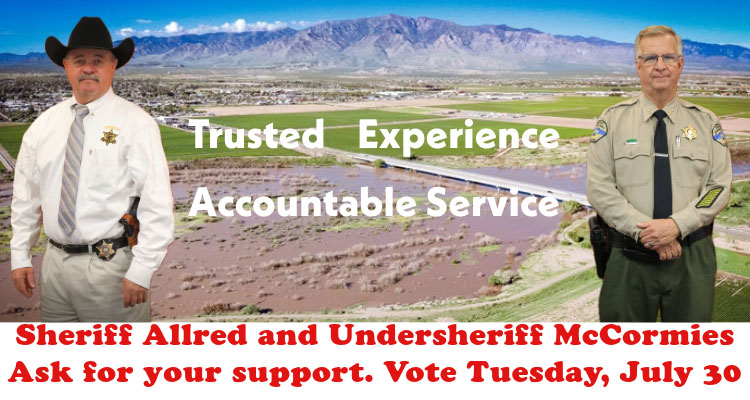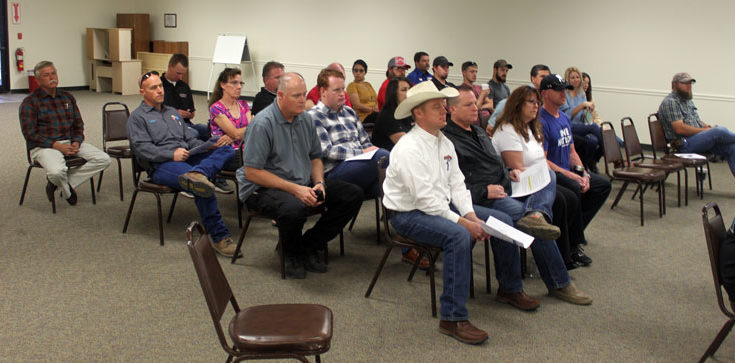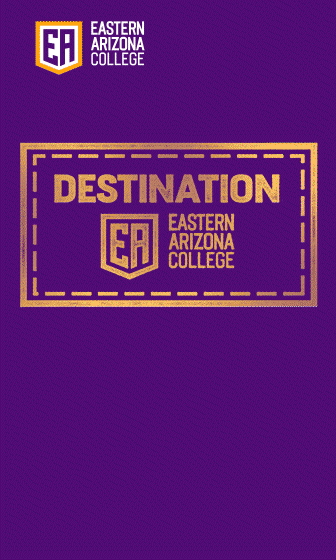Jon Johnson Photo/Gila Herald: Auto dealers packed the room at an early morning Safford City Council work session Friday to express their opposition to a proposed sales tax increase on single-ticket items greater than $5,000.
By Jon Johnson
Editor’s Note: The Gila Herald is 100 percent locally owned and operated and has advertising spots available for local businesses. Send an email to jonjohnsonnews@gmail.com for a breakdown of advertising rates and advertise local instead of sending advertising money to a national chain out of town.
SAFFORD – A proposal to increase the sales tax rates on single-item purchases greater than $5,000 was dead-on-arrival during a Friday morning Safford City Council work session.
Owners and employees of several local automotive dealerships packed the Phelps Dodge room at the Safford City-Graham County Library for the 7 a.m. meeting.
Safford Mayor Jason Kouts acknowledged the crowd and adjusted the meeting’s schedule to accommodate them by tackling the sales tax proposal first.
“These fine men and women need to get back to their businesses that they’ve graciously taken off for to attend this meeting, so we’re going to start right into talking about the sales tax increase on items over $5,000,” Kouts said.
The proposal was brought to the council by City Manager Horatio Skeete, who advised he did so to fund a systematic system of road reconstruction throughout the city and that increasing the tax from 1 percent to 1.5 percent could generate an additional $150,000 to $175,000 in revenue to the city each year. Other alternative increases, including leaving the rate at 1 percent for items greater than $5,000 but increasing the portion under $5,000 to the full tax rate of 2.5 percent, could generate $200,000 to $250,000 per year, according to Skeete.
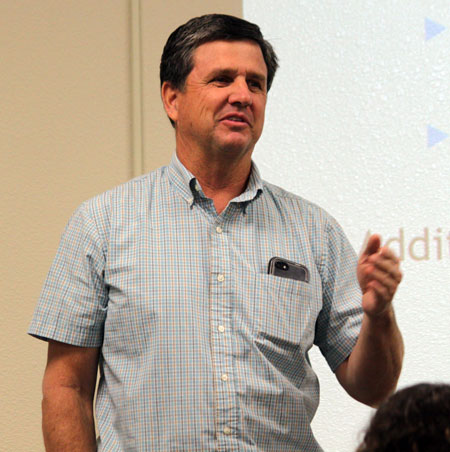
Kempton Chevrolet co-owner Kyle Kempton spoke to the council and said his dealership alone brought in $205,000 in sales tax revenue to the city last year and that Arizona Dodge and Johnson Motors likely contributed about the same. He advised that more than 900 vehicles were sold in Safford last year but that local residents also purchased roughly 800 vehicles from outside the area.
“So, I’ve heard some of the councilmen suggest that if we increase the amount of vehicles sold here in town, we increase our coffers – our tax base,” Kempton said. “That, to me, makes more sense than anything. Like in business, you can cut your expenses, you can increase your growth, or you can sell more vehicles. Always, the best solution is to sell more vehicles and if the city would come together and promote ‘buy it home’ we would see these adjusted increases by raising taxes – we’d blow them away just by selling more vehicles (by) creating a buy it home attitude. I mean those 800 people that bought out of town – do the math on that . . . That’s roughly $1.2 million that we’d have in our tax coffers. That’s huge.”
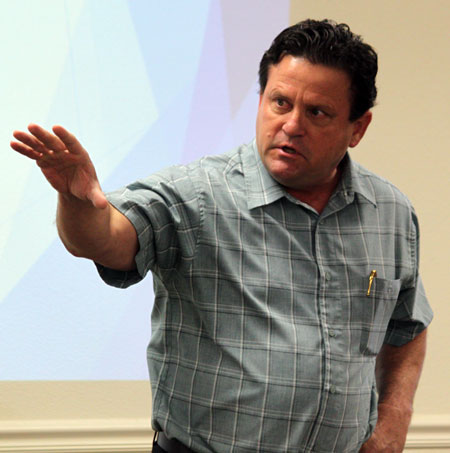
Kempton arrived at that number by figuring about $615,000 in sales taxes from the three main automobile dealerships in taxes paid last year for the more than 900 cars sold added to the amount of sales taxes not procured by the city on the roughly 800 vehicles sold to residents outside of the area.
Additionally, Kempton warned that a tax could depress sales to an extent that a dealership could lose its franchise affiliation and even possibly close. So, in essence, a new tax wouldn’t necessarily raise sales tax revenue but could actually lower revenue in lost sales and, eventually, closed dealerships.
“It would be so nice to see the city come together (with) the chamber and promote buy it home,” Kempton said. “We would blow our budget away with additional revenue.”
Kempton’s brother and Kempton Chevrolet co-owner Kip Kempton also spoke to the council and also pushed a buy locally stance. He implored the city to work with the local businesses.
“Let’s create a campaign that will bring people here, not send them out of town,” Kip Kempton said.
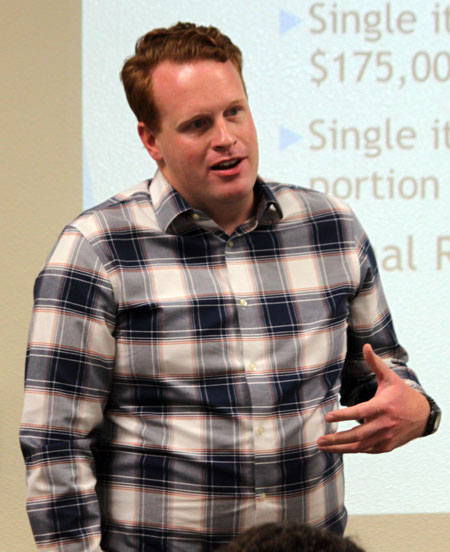
Newly instated Graham County Chamber of Commerce Interim Executive Director Vance Bryce also expressed the chamber’s opposition to the proposed tax increase and added that such a tax’s cost is ultimately passed onto the consumer.
Even prior to all the business owners comments, the council members present (council members Steve McGaughey and Chris Taylor were absent) all expressed their opposition to the proposed tax increase.
“I don’t think ever that a tax increase should be our first defense to come away with money,” Kouts said. “I truthfully believe that the city could work to increase sales within the community by advertising to shop local; to come to our community. We have dealerships in our community that has a less tax base than others, so we could all pitch in and increase this number to a greater number. When I lose one person out of town to go buy a car, I’m losing their sales tax; I’m losing their money they spend out of town shopping and anything.”
Kouts said the city’s attitude should be what it can do for the businesses to help them grow instead of what the businesses are going to do to help the city grow.
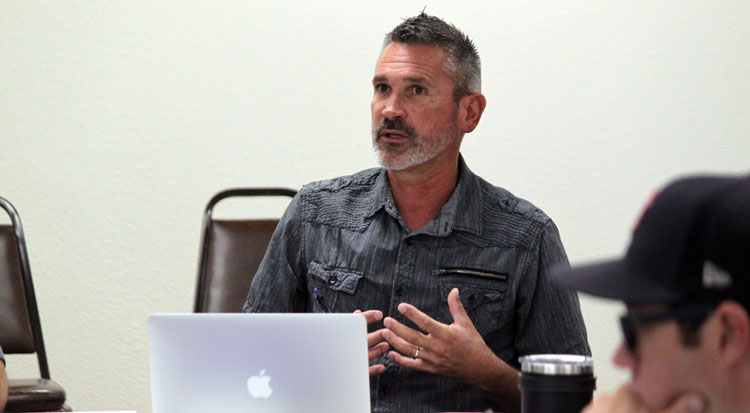
In 2017, Safford passed an amendment to its sunset clause of what was supposed to be a temporary half-cent sales tax increase. The amendment gave an end date of 2030 – adding five years to the original end date – but the sunset clause was rescinded unless a council in the future votes to continue it.
The half-cent sales tax was enacted by council decree in November 2005 and was set to expire in 2025. The tax was initially passed to pay bonds taken out for a 12-phase streets renewal program that redid numerous streets throughout the city over a five-year timespan, including 8th Avenue. The measure increased Safford’s city tax from 2 percent to 2.5 percent. However, according to Safford Finance Officer Alma Flores, the bonds won’t be paid off until fiscal year 2030/31 due to refinancing that occurred in 2015 and not rescinding the end date would be disastrous to the city. The refinancing that was done will reportedly save Safford $700,000 over the life of the debt due to lower interest rates, according to Skeete.

